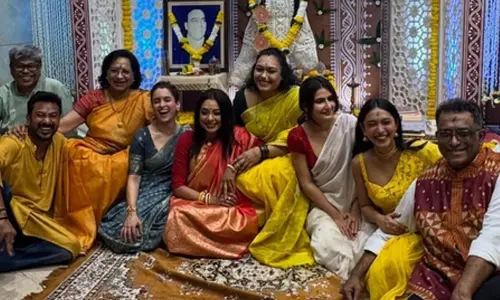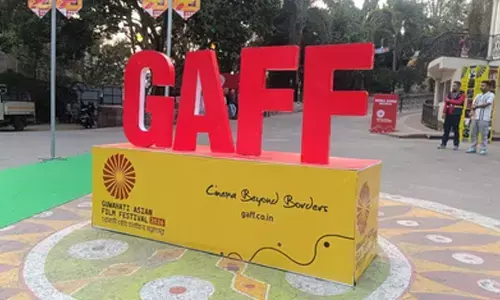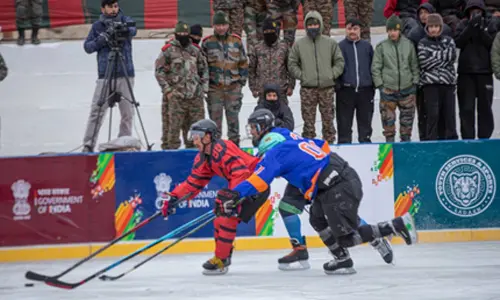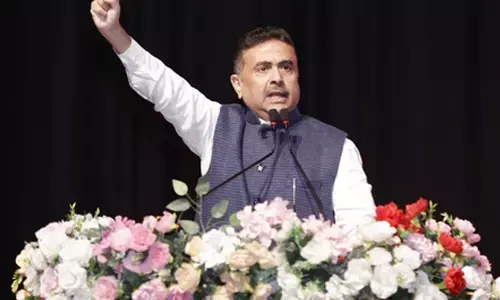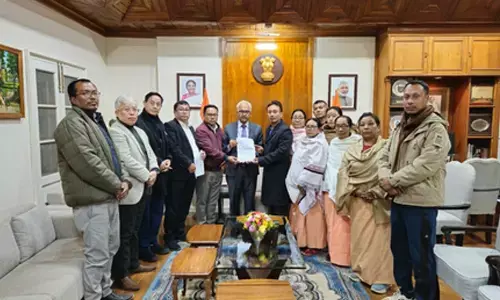'Think 20' must strive for both India's economic growth & security
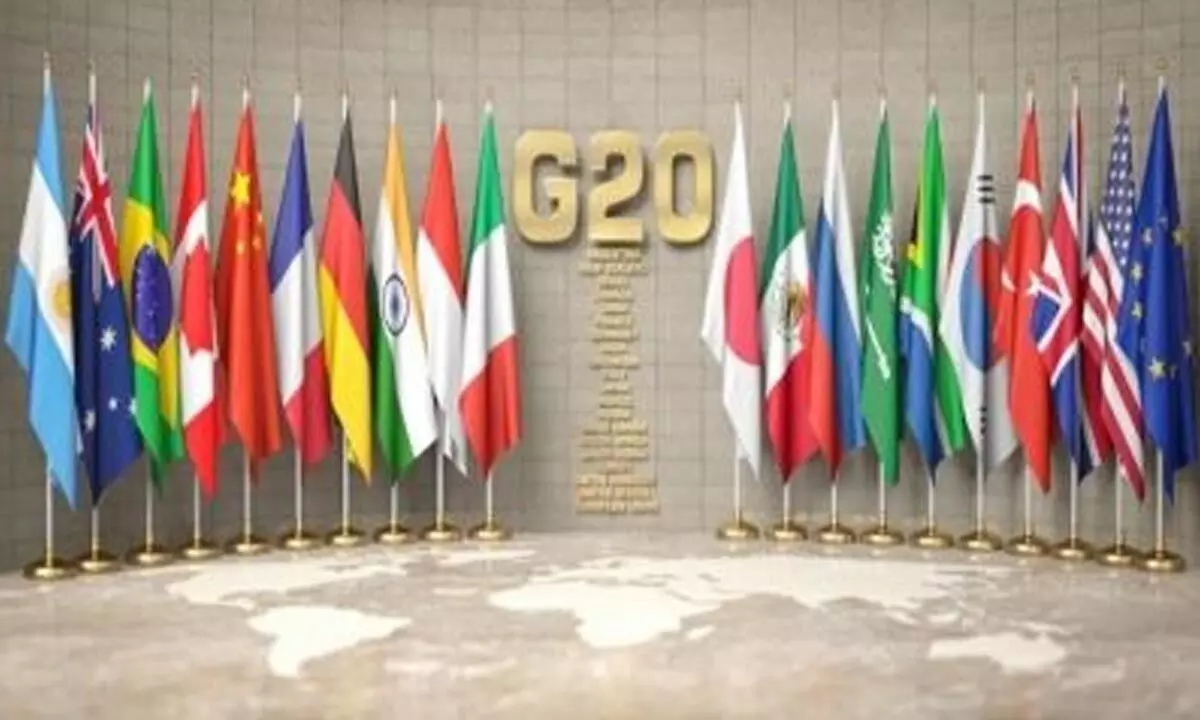
‘Think 20’ must strive for both India's economic growth & security
All nations endeavour to safeguard their security and economic interests – in that order – and this is what foreign policy is all about.
All nations endeavour to safeguard their security and economic interests – in that order – and this is what foreign policy is all about. Foreign policy, by definition, is a product of national security and economic concerns, and diplomacy provides the means for implementing it.
In today's world, diplomacy goes beyond 'hospitality and smiles' to demand 'ideation' that provides the intellectual strength to create a convergence in the face of differing stands and safeguard mutual interests in bilateral relations while handling the world affairs.
Think 20 (or T20), the forum of country's top Think Tanks, is the prime instrument of India's G20 Presidency for deliberating on ways and means of promoting the country's growth as part of the world economy, enhancing India's national security and elevating the country's position as a major power in a multipolar world.
India is rightly taking up the issues of the South during its G20 Presidency. The situation in South Asia deserves a closer examination for the reason that in this India-centric region, the security environ has an overriding impact on its geopolitics.
While the focus no doubt remains on economic cooperation, the challenge in the region is to effectively counter the dangerous forces threatening not only India's security but the security of the democratic world at large.
The rise of faith-based militancy, primarily in the Pak-Afghan belt, has affected India the most. Faith-based militancy graduating into a force behind the call for Jehad on one hand and the Chinese aggressiveness on land and the marine front, on the other, have created a serious threat to the security of the countries spread across the vast stretch from West Asia to Indo-Pacific.
For India, the threat of terrorism has multiplied because of the new found capability of Pak ISI to set upon this country militants from across the Islamic spectrum – ranging from Hanafi HuM and the LeT of Ahle Hadis to the radical Wahabis of Taliban, Al Qaeda and ISIS – the Al Qaeda's equivalent rising from the second theatre of 'war on terror' in Iraq-Syria belt. India's security strategy has to take care of this aggravated threat.
India is seeing a new level of hostility from the Sino-Pak axis following the abrogation of Article 370 of the Constitution by the Indian Parliament and designation of Ladakh and Jammu & Kashmir as two Union Territories. India, under Prime Minister Narendra Modi, has kept up the initiative of building economic relationship with all other neighbours and the countries beyond and achieved a remarkable consolidation of Indo-US friendship on one hand, and maintained strong bonds with Russian President Vladimir Putin on the other – notwithstanding the confrontation of the US with Russia on Ukraine.
Prime Minister Modi has emerged as a global leader whose counsel on issues of war and peace as also on economic advancement of the world commands respect. This will go a long way in helping India to achieve the mission of G20 Presidency on various fronts. T20 has a major role in this – internationally and at home. It should give enough attention to the task of facilitating formulation of a comprehensive strategy of taking India economically forward in the face of serious security threats arising from its neighbourhood.
Pakistan's attempts to cast Indo-Pak relationship in a Hindu-Muslim framework have to be countered through a campaign to highlight the intrinsically secular character of the Indian state demonstrated by 'one man one vote', equal opportunities, protection of law for all citizens, and the fact of the elected political executive of India ruling the country without a denominational stamp. This is in contrast to an Islamic Republic that does not treat all citizens on an equal footing.
In the prevailing geopolitical scenario, India's national security is threatened more than anything else, by external forces trying to cause internal instability here by fishing in our troubled waters at home.
The experience of India's partition on grounds of religion should have made it the first responsibility of all citizens of India to accept nationalism as the basic uniting factor in this country with total freedom of worship being granted to everybody.
The sense of nationalism is a cultural concept that revolves round shared feelings of pride in secured boundaries, common view of the country's friends and adversaries and partnership in carrying the nation forward towards a bright future.
Communal politics was sustained by vested interests - Ulema and the communally-minded elite in the main - and this made it possible for outside forces to instigate communal militancy that would graduate into faith-based terror – as was illustrated by the emergence of Indian Mujahideen out of Students Islamic Movement of India (SIMI) in the North in the past, and the rise of the militant Islamic outfit called Popular Front of India (PFI) from Kerala in the South more recently.
It is a matter of great concern that nationalism has been made to sound like a disparaging word and even a plea was advanced that singing the national anthem and saluting the national flag should be made optional for the minorities. Nationalism has deliberately been made synonymous with Hindu nationalism to run down the Modi regime. Even a body of historians has come forth to emphasise that India was never really a nation in the past. They clearly miss the point that whatever might have been the situation earlier, independent India – for the sake of its present and the future – has to work for uniting its people into a common nationhood.
In the context of India's G20 Presidency, answers have to be found to the security and economic issues facing the country as also the world outside, and a framework of policies and joint action evolved to make this earth a happier and peaceful place in keeping with the motto 'Vasudhaiva Kutumbakam' ( World is one family) given by India.
Mention should be made here of the event called R20 at Bali that Indonesia launched with the express aim of projecting Islam as a religion of peace, rejecting 'radicalisation' and emphasising the need to respect all faiths. Representatives of different religions were invited and they included Ram Madhav of RSS from India.
The proceedings conducted by the Mecca-based Rabita-e-Alam-e-Islami in the largest Muslim country, made R20 a powerful indicator of the importance of the Islamic world reminding the international community of how it is their 'faith' that bound all Muslims together.
India would do well to draw some takeaways from the Bali R20 basically to get representative Muslim organisations in India and outside to proclaim that they were against extremism and radicalisation, that Islam had respect for all faiths and that the world should move towards democracy that put all citizens regardless of faith on the same footing.
Coming back to the Indian scene, a follow up on Bali R20 would be to get Islamic institutions like Darul Uloom Deoband and Nadwatul Ulema Lucknow, who believed that India was a land of peace (Dar-ul-Aman), to declare that Jehad was not required to deal with any political issues of the Muslim world in today's times. The OIC – notwithstanding the fact that Pakistan though not a member of G20 had a capacity to influence the Islamic block – should be persuaded to take a similar stand.
Many more steps can be envisaged to ensure that religion was not mixed up with international politics at the cost of democratic principles. The T20 has a significant responsibility of studying some of the more important aspects of global security situation that had a bearing on India and work in close cooperation with any R20 kind of forum formed under G20, to evolve the right Indian strategies for economic, environment, security, cultural and diplomatic matters.
(The writer is a former Director of Intelligence Bureau. Views expressed are personal)










